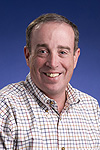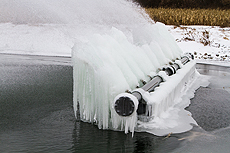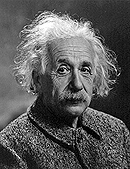|
Have a safe day!
Monday, Feb. 10
2:30 p.m.
Particle Astrophysics Seminar - Curia II
Speaker: Stephan Meyer, University of Chicago
Title: The Fermilab Holometer: A Measurement of Planck Scale Quantum Geometry
3:30 p.m.
DIRECTOR'S COFFEE BREAK - 2nd Flr X-Over
4 p.m.
All Experimenters' Meeting - Curia II
Special Topic: DES Update
Tuesday, Feb. 11
11 a.m.
Academic Lecture Series - One West
Speaker: Roxanne Guénette, University of Oxford
Title: Liquid-Argon Detector Technology
11 a.m.
Special Seminar - WH11NE
Speaker: Petra Merkel, Purdue University
Title: Performance of the CMS Tracker and Its Role in Higgs Searches
3:30 p.m.
DIRECTOR'S COFFEE BREAK - 2nd Flr X-Over
4 p.m.
Accelerator Physics and Technology Seminar - One West
Speaker: Dave Johnson, Fermilab
Title: Linac Laser Notcher Project in the Proton Improvement Plan
Click here for NALCAL,
a weekly calendar with links to additional information.
Ongoing and upcoming conferences at Fermilab
|
|
Monday, Feb. 10
- Breakfast: oatmeal raisin pancakes
- Breakfast: sausage, egg and cheese croissant
- Fermi burger
- Roasted pork loin with orange mustard glaze
- Marinated roasted chicken
- Classic club sandwich
- Mandarin orange pecan chicken salad
- Chicken and sausage gumbo
- Texas-style chili
- Assorted pizza by the slice
Wilson Hall Cafe menu
|
|
Wednesday, Feb. 12
Lunch
- Cuban black bean patties
- Pineapple rice
- Coconut tres leches cake
Friday, Feb. 14
Dinner
- Potato, bacon and gruyere souffle
- Surf and turf (steak and lobster)
- Mushroom risotto
- Chocolate fondue
Chez Leon menu
Call x3524 to make your reservation.
|
|
Rob Roser named acting associate lab director and CIO
 |
|
Rob Roser
|
Rob Roser has been named Fermilab's acting associate laboratory director of computing and chief information officer, effective Feb. 1. Roser will lead Fermilab's computing efforts while the laboratory conducts a national search for the position.
Roser succeeds Victoria White, who has been leading the Computing Sector for 10 years. She will continue to serve as Fermilab's chief operating officer. Roser will continue to head the Scientific Computing Division.
"This is quite an opportunity," Roser said. "My job will be to take this amazing team that Vicky has built over the past decade to the next level and to clear the obstacles so they can be successful. I am very proud to lead this talented group, and I am looking forward to this new challenge."
Roser began his career at Fermilab in 1997 as a Wilson Fellow, conducting physics analysis on the top quark. He led a major piece of the Tevatron Run II detector upgrade and then headed CDF's day-to-day operations before he was elected as the experiment's spokesperson in 2005. In 2012 he stepped down as CDF spokesperson and went on to lead the Scientific Computing Division, which provides the facilities, tools and programming necessary to conduct and analyze experiments.
|
All-hands meeting video and slides online
On Feb. 6, Fermilab Director Nigel Lockyer led an all-hands meeting to discuss the current state of the laboratory. A video of the talk and the presentation slides are now available in the online archive.
|
Fermilab at AAAS Family Science Days this weekend
Fermilab will participate in this year's Family Science Days, which is part of the annual meeting of the American Association for the Advancement of Science. The event will take place at the Hyatt Regency in Chicago from Feb. 15-16.
Family Science Days is a free community science showcase featuring hands-on demos, shows and other activities appropriate for K-12 children and their families.
As part of Family Science Days, both Fermilab and the lab's Education Office will have booths at the AAAS Exhibit Hall. Fermilab's Mr. Freeze and Marcela Carena, also of the University of Chicago, are among the participants.
Visit the event's Web page for more information and to register.
|
Ice fountain
 |
| The water sprayers on the Main Injector pond made ice sculptures on a recent cold day. Photos: Elliott McCrory, AD |
|
China builds mammoth detector to probe mysteries of neutrino mass
From Science, Feb. 7, 2014
BEIJING — It isn't easy to weigh a ghost. After neutrinos were hypothesized in 1930, it took physicists 67 years to prove that these elusive particles—which zip through our bodies by the trillions each second—have mass at all. Now, a Chinese-led team is planning a mammoth neutrino detector, meant to capture enough neutrinos from nearby nuclear reactors to determine which of the three known types, or flavors, of neutrinos are heavier or lighter. That mass hierarchy could be key to explaining how neutrinos get their mass, and measuring it would be a coup for China's particle physicists.
Last month, scientists gathered in Jiangmen, in China's southern Guangdong province, to review plans for the Jiangmen Underground Neutrino Observatory (JUNO). Groundbreaking is slated for later this year on the $300 million facility, which China aims to complete by 2019. The facility, which backers say will be twice as sensitive as existing detectors, should not only pin down key properties of neutrinos themselves but also detect telltale neutrinos from nuclear reactions in the sun, Earth, and supernovas.
Other planned facilities aim to reveal the mass hierarchy, but China could be the first to arrive at an ironclad result.
Read more
|
|
Tracking lessons learned
 |
| "Learn from yesterday, live for today, hope for tomorrow. The important thing is not to stop questioning." —Albert Einstein
|
Learning from past events and projects is a good thing, both at home and at work. By sharing lessons learned, we can increase safety, improve quality and reduce the cost of our products and processes.
Many divisions, sections and centers here at Fermilab already keep records of lessons learned. But what is the best way of collecting and sharing them at a laboratory of this size? How can one make sure that all employees learn about the information that is relevant to them?
The Lessons Learned Program is part of the Integrated Quality Assurance effort, and Fermilab's Lessons Learned database (KCA certificate required) was created to provide you with tips on how to improve efficiency, quality and safety. The database is a compilation of lessons learned, grouped by project and problem type, from various Fermilab departments and sections. These lessons are collected by the ESH&Q operating experience program coordinator, who maintains the database and captures a wealth of information that can help co-workers make more informed decisions. The coordinator also has the ability to submit for approval by the chief operating officer internal lessons learned, which are to be entered into the DOE Lessons Learned database.
The database also includes information from other DOE sites and their contractors, U.S. and foreign government agencies, industry, professional societies, trade associations, national academies and universities.
You can search the Lessons Learned database by different queries, including:
- date of occurrence
- contact information or Fermilab ID
- subject
- severity of problem
- work type
- risk level.
Each entry provides a variety of tips on what to do and what not to do to prevent problems, as well as how to correct problems if they occur.
To keep the information fresh and useful, please take the time to share your experiences by conveying your lessons to your supervisor, quality assurance representative or senior safety officer.
For more information on lessons learned, see the Quality Assurance Manual chapter 12010: Contractor Assurance/Lessons Learned Program and Procedures.
—J.B. Dawson
|
CERN kicks off plans for LHC successor
From Physics World, Feb. 6, 2014
The CERN particle-physics lab near Geneva is putting plans in place to build a successor to its Large Hadron Collider (LHC). At a meeting to be held at the University of Geneva next week, some 300 physicists and engineers — including current CERN boss Rolf-Dieter Heuer — will discuss a range of options for a possible future collider. This includes plans for a massive next-generation circular collider — with a circumference of 80-100 km — that would accelerate protons to energies of about 100 TeV.
While the 27 km-circumference LHC has been colliding protons at energies of up to 7 TeV in the hunt for new particles since it first switched on in 2008, for more than 30 years physicists have been carrying out R&D on linear colliders that could one day be the LHC's successor. One leading design effort is the International Linear Collider (ILC), which would accelerate electrons and positrons to about 250 GeV and smash them together at a rate of five times per second. Funding for the $8bn, 31 km-long collider has yet to be found, but Japanese particle physicists are already making moves to host this next-generation particle smasher.
Read more
|
|